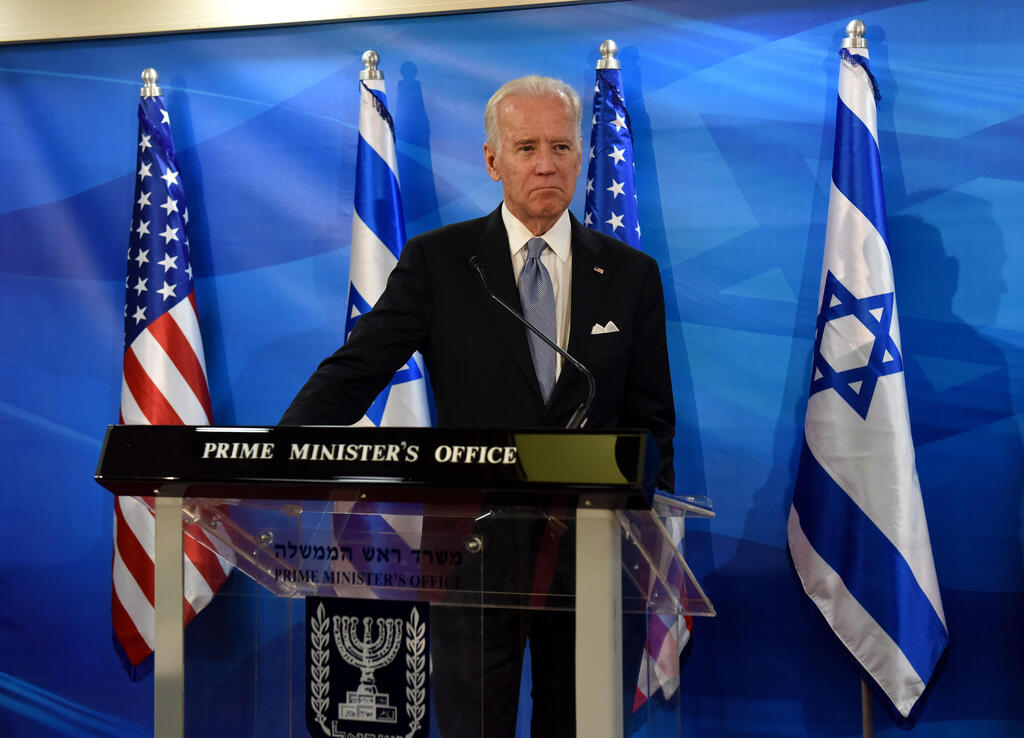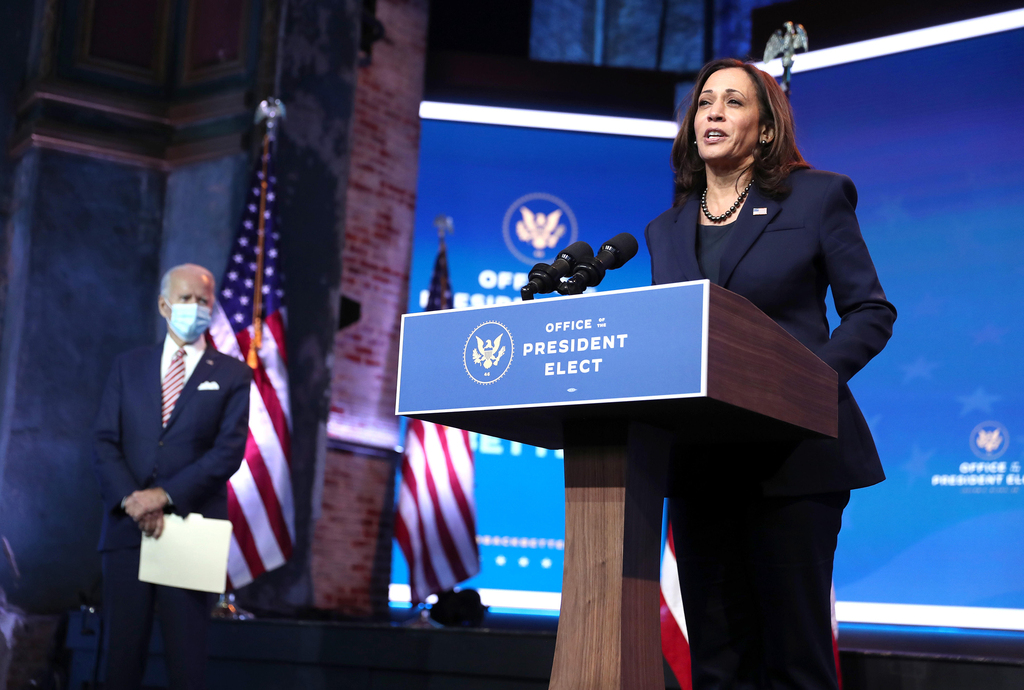Getting your Trinity Audio player ready...
On Wednesday, on the steps of the U.S. Capitol, President-elect Joe Biden will be sworn into office and a new era will dawn.
The last four years of Donald Trump's presidency were like a dream come true for Israel's right-wing.
Under his tenure many great things occurred, such as Israel's normalization treaties with four Arab nations. But the tight connection between Prime Minister Benjamin Netanyahu and Trump has caused severe damage to Israel.
With all due respect to the 70 million Americans who voted for him, the majority of the U.S. is disgusted with the outgoing president, with that number ballooning after the Jan. 6 attack on the U.S. Capitol by his supporters.
Israel had traditionally managed to keep itself on neutral ground when it came to the political fighting between the Democrats and the GOP, but Netanyahu threw that tradition out of the window and now Jerusalem must embark on some serious damage control.
Joe Biden and his vice president Kamala Harris are clearly members of the Democratic Party's pro-Israel wing. We must remember that Harris was the one who led the Senate against then-U.S. President Barak Obama's choice to abstain during the UN vote on Resolution 2334 condemning Israel for its settlements in the West Bank.
But that support for Israel aside, two major issues are set to become points of contention between Biden's administration and whichever government is sitting in Jerusalem after the March 23 election.
The first issue is the West Bank settlements and outposts, with Biden expected to return to the traditional policies of previous administrations, namely, opposing them.
He will surely be against any new outposts founded in the last two decades, whose very existence is a violation of previous agreements signed between the governments of George W. Bush and Ariel Sharon in 2003, with the former prime minister being obligated to tear them down.
6 View gallery
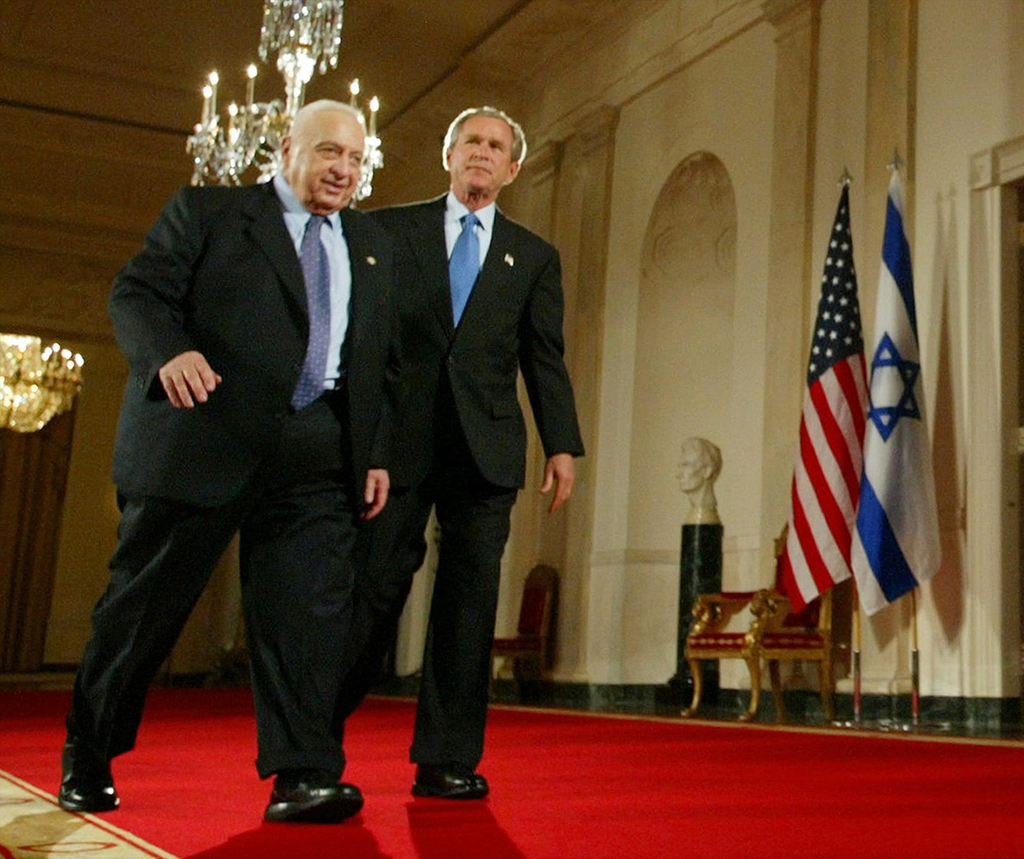

Prime Minister Ariel Sharon and U.S. President George W. Bush meeting at the White House, April 2004
(Photo: AP)
The current right-wing bloc is not only not going to tear them down, but will allow more to be built and is now busy looking for legal loopholes to authorize those already in place.
The second issue will be Iran, with a wide political consensus in Israel that the 2015 nuclear deal was a bust and flawed from the beginning.
It is doubtful whether the agreement halted Iranian efforts to create a bomb, but it has given Tehran immense influence in the region, allowing it to expand its military capabilities in other fields and bolster its proxy groups in Yemen, Syria, and Lebanon.
6 View gallery
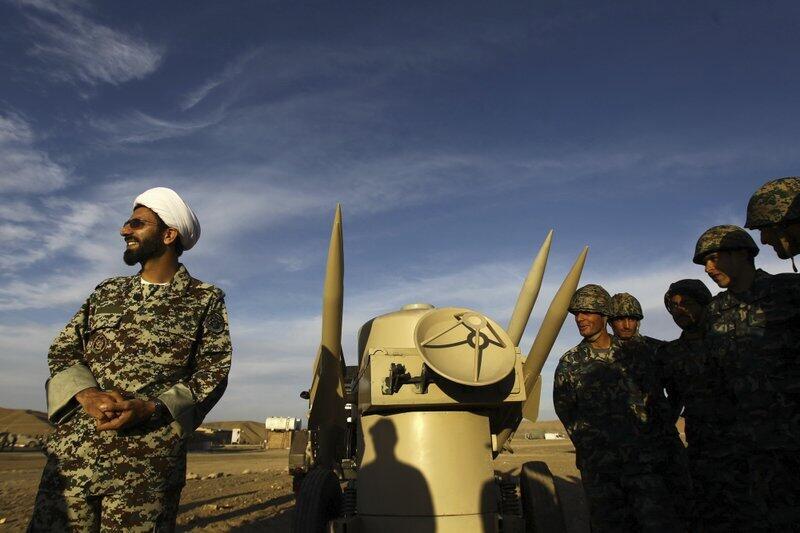

An Iranian clergyman stands next to missiles and army troops in an undisclosed location in Iran
(Photo: AP)
Biden was a great supporter of the nuclear deal, but it is yet unclear in which direction he will go in the wake of Trump's withdrawal in 2018.
Israel's conduct will also influence Biden's decisions to a certain degree, given that Netanyahu has done everything in his power to lose all standing with the Democrats.
His 2015 speech to the U.S. Congress not only failed to thwart the nuclear deal, but delivered a slap in the face to Obama and the entire Democratic Party. And that will come back to haunt him very soon.
This destruction of ties is still one of Netanyahu's greatest strategic blunders.
6 View gallery
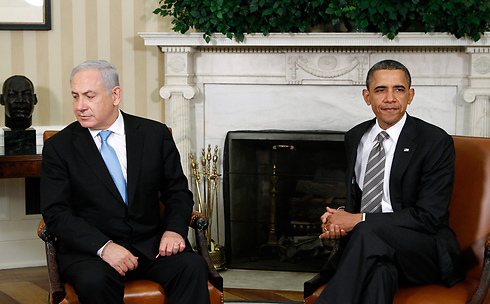

Prime Minister Benjamin Netanyahu and U.S. President Barack Obama meeting at the White House in 2015
(Photo: Reuters)
It is doubtful whether the Biden White House will make any dramatic decisions regarding Iran by the March 23 vote, but any Israeli prime minister who follows after will have to learn from Netanyahu's mistakes and work on rebuilding that relationship.
During his eight years as vice president, Biden was many times the mediator between Obama and Netanyahu, the "good cop" to the president's "bad cop."
Serious drama between the incoming president and the prime minister is unlikely, given that Biden has spent many years in Congress as a man of compromise and negotiation.
6 View gallery


Then-U.S. Vice President Joe Biden meeting with Prime Minister Benjamin Netanyahu during his visit to Israel in 2016
(Photo: GPO)
It is also doubtful that he will immediately revisit the Iran nuclear deal and possibly jeopardize Trump's normalization agreements for Israel, despite voices from both in and out of his party calling for him to do so.
"I am a Zionist. You do not need to be Jewish to be a Zionist," Biden once said.
Being a Zionist does not mean supporting Israel's right-wing policies or turning Israel into a bi-national state with more and more settlements and outposts in the West Bank.
A Zionist is someone who supports Israel being a Jewish and Democratic state, and on Wednesday we will see two such people enter the White House.


